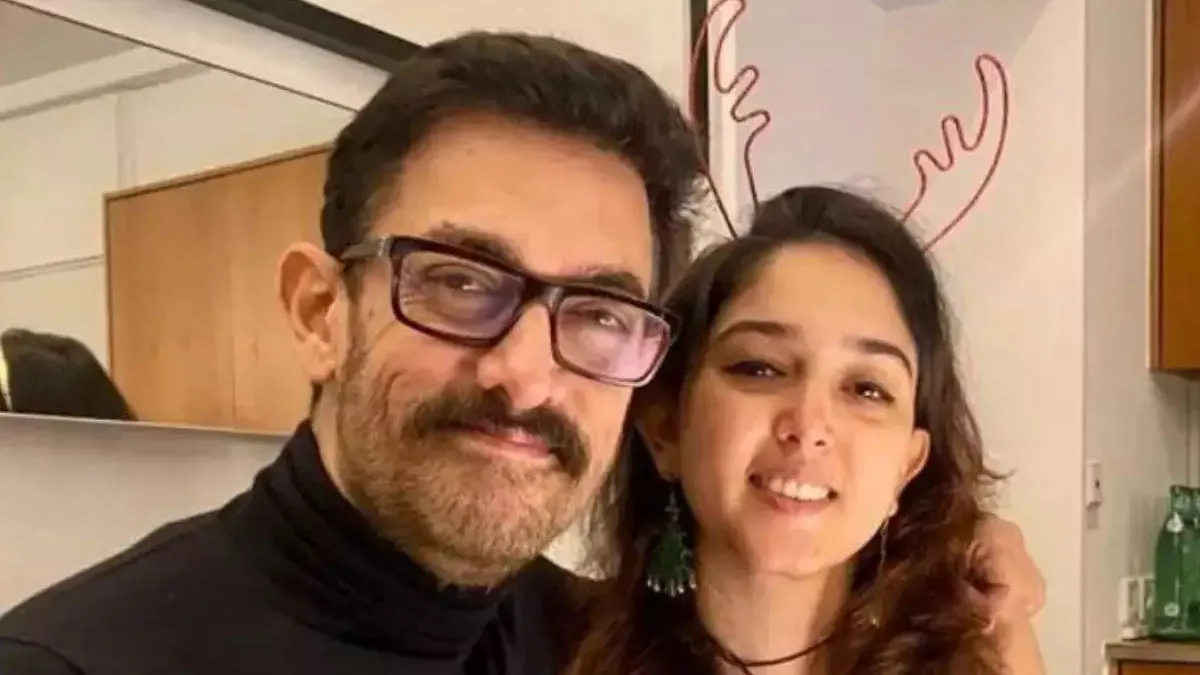
Bollywood actor and producer Aamir Khan, known for his thoughtful approach to life and art, has often championed conversations around mental health. Over the years, he has spoken candidly about his daughter Ira Khan’s struggles with depression and how she turned her experiences into a mission to help others. Recently, Aamir revealed a more personal journey — attending joint therapy sessions with Ira to strengthen their relationship.
Table of Content:-
A Candid Revelation About Therapy
In a conversation with Dr Vivek Murthy for Netflix India, Aamir shared that he and his daughter decided to seek professional help to address long-standing challenges in their relationship. The "PK" actor admitted it was Ira who encouraged him to take this step. Reflecting on their experience, he acknowledged the positive impact therapy has had on their bond.
“In fact, Ira and I have started joint therapy,” Aamir revealed, adding, “We go to a therapist to work on making our relationship better and addressing issues that have existed for years.” His openness serves as a powerful reminder that even in families perceived as close-knit, professional intervention can be valuable.
View this post on Instagram
Breaking the Stigma Around Therapy
Aamir’s decision to openly discuss his therapy experience mirrors a broader movement within the entertainment industry, where celebrities are increasingly sharing their mental health journeys. Actors like Arjun Kapoor have also spoken about seeking therapy during difficult times, helping to normalise conversations about emotional well-being.
Therapy is not just for those in crisis but can be a proactive step for anyone seeking personal growth, better communication, or healthier relationships.
Understanding the Benefits of Therapy
Therapy comes in many forms, each tailored to address specific challenges. Whether it’s individual sessions, couples counselling, or family therapy, the goal is to provide tools for emotional healing and self-awareness.
How Talk Therapy Can Help
Talk therapy, also known as psychotherapy, involves speaking with trained professionals like psychiatrists or psychologists. As per Kavya Bontha, Counselling Psychologist, Lissun (Mental health and emotional wellness startup), it allows individuals to discuss their thoughts and feelings openly in a safe space. Through this process, people can:
-1732162944469.jpg)
- Identify sources of stress and their impact
- Develop strategies to cope with emotional difficulties
- Gain a deeper understanding of their behaviours and patterns
According to the American Psychological Association, around 75% of people who participate in talk therapy report experiencing significant benefits.
The Role of Family Therapy
Family therapy, like the sessions Aamir and Ira attended, focuses on addressing issues within the context of relationships. A family therapist can:
- Treat mental health concerns affecting multiple family members, such as anxiety or trauma
- Improve communication and conflict resolution skills
- Foster collaboration among family members to tackle shared challenges
By focusing on the family unit rather than just one individual, this approach promotes collective healing and growth.
Why Therapy Matters
Aamir Khan’s story underscores the importance of seeking help when needed. Therapy offers an opportunity to untangle complicated emotions, address unresolved conflicts, and build stronger, healthier connections. It’s not just about fixing problems but about learning to navigate life with greater resilience and understanding.
For anyone hesitant about therapy, it’s worth remembering that seeking help is a sign of strength, not weakness. Whether you’re dealing with personal struggles, family dynamics, or simply seeking emotional clarity, therapy can be a transformative journey.
Aamir and Ira’s Legacy of Openness
By embracing therapy and sharing their journey, Aamir and Ira Khan are contributing to a larger conversation about mental health. Their example highlights the importance of vulnerability and the power of professional support in creating meaningful change.
Therapy doesn’t just strengthen relationships; it empowers individuals to lead more fulfilling lives. For the Khans, it’s a step toward healing, understanding, and building a deeper connection — a message that resonates with families everywhere.
Also watch this video
Read Next
Why Should You Chew Food Properly? Understanding The Side Effects Of Neglecting This Essential Step
How we keep this article up to date:
We work with experts and keep a close eye on the latest in health and wellness. Whenever there is a new research or helpful information, we update our articles with accurate and useful advice.
Current Version
